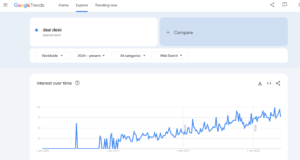A Deal Desk is a strategic asset in modern enterprises, serving as the linchpin that ensures deals are structured effectively, priced accurately, and aligned with the organization’s overarching goals. This specialized team collaborates with various departments to streamline the sales process, enhance efficiency, and maximize revenue. In this blog post, we will delve into the intricacies of a Deal Desk, exploring its functions, benefits, and best practices.
The Core Functions of a Deal Desk
The Deal Desk is integral to the pricing strategy and approval process within a company. This team analyzes market trends, competitor pricing, and internal cost structures to develop optimal pricing models. By ensuring all pricing decisions align with the company’s financial goals and policies, the Deal Desk mitigates the risk of underpricing or overpricing products and services, which can significantly impact profitability. For more insights on pricing strategies, you can refer to this resource.
Deal structuring is another critical function of the Deal Desk. This involves negotiating terms, conditions, payment schedules, and service levels to craft agreements that meet both customer needs and company objectives. By working closely with legal, finance, and sales teams, the Deal Desk ensures each deal is beneficial and strategically sound. Understanding the nuances of deal structuring can be further explored here.
Contract management is a vital component of the Deal Desk’s responsibilities. This includes drafting, reviewing, and approving contracts to ensure they are legally sound and comply with corporate policies. The Deal Desk ensures all contractual obligations are clearly defined and understood by both parties, which helps prevent disputes and fosters a smooth business relationship. For additional information on effective contract management, visit this site.
Benefits of Implementing a Deal Desk
One of the primary benefits of having a Deal Desk is enhanced efficiency. By centralizing deal management processes, the Deal Desk streamlines operations, reducing the time and effort required to close deals. This leads to quicker turnaround times and increased sales velocity, which are crucial in a competitive market. The efficiency gains can be substantial, contributing to overall business agility and responsiveness.
Improved profitability is another significant advantage. Through meticulous pricing strategies and deal structuring, the Deal Desk helps maximize revenue and profitability. They ensure each deal is financially sound and contributes positively to the company’s bottom line. This focus on profitability is essential for sustaining long-term business growth and stability. For more on enhancing profitability through strategic deal management, check this article.
The Deal Desk also plays a crucial role in risk mitigation. By focusing on compliance and risk management, the Deal Desk protects the company from potential legal and financial pitfalls. They assess the risks associated with each deal and implement measures to mitigate those risks, ensuring adherence to legal requirements, financial standards, and industry regulations. For a deeper dive into compliance and risk management, explore this resource.
Best Practices for an Effective Deal Desk
Cross-functional collaboration is essential for a successful Deal Desk. This involves fostering strong relationships between various departments, including sales, finance, legal, and operations. Regular communication and joint problem-solving are critical for aligning objectives and ensuring smooth deal execution. Effective collaboration can significantly enhance the Deal Desk’s efficiency and effectiveness.
Leveraging technology is another best practice. Advanced tools and software can greatly enhance the efficiency of the Deal Desk. Customer Relationship Management (CRM) systems, contract management software, and pricing tools help streamline processes and provide valuable data insights. For information on the best tools for Deal Desks, check this guide.
Continuous training and development are crucial for keeping the Deal Desk team updated with the latest industry trends, regulations, and best practices. Regular training programs ensure the team is well-equipped to handle complex deals and evolving market conditions. Investing in professional development can yield significant returns in terms of deal quality and efficiency. For training resources, visit this site.
The Strategic Importance of a Deal Desk
The strategic importance of a Deal Desk cannot be overstated. It acts as a trusted advisor to the sales team, providing the tools and support needed to close deals effectively. This enhances the overall performance of the sales team and contributes to achieving sales targets. Moreover, the Deal Desk’s focus on metrics and KPIs helps measure its effectiveness and identify areas for improvement. Regularly reviewing these metrics allows the team to make data-driven decisions that enhance performance and profitability.
Establishing clear processes and guidelines for deal management is also essential. Documenting procedures, setting approval workflows, and establishing clear criteria for deal evaluation help streamline operations and reduce bottlenecks. This structured approach ensures consistency and reliability in deal management, which is crucial for maintaining high standards and achieving business objectives. For additional insights on establishing clear processes, refer to this resource.
Conclusion
In conclusion, the Deal Desk is an indispensable part of modern enterprises, playing a pivotal role in optimizing sales processes, enhancing profitability, and managing risk. By providing strategic support to the sales team and ensuring deals are aligned with the company’s objectives, the Deal Desk drives business growth and success. Implementing best practices and leveraging technology can further enhance the effectiveness of the Deal Desk, making it a valuable asset in today’s competitive business landscape.
For further reading on the strategic importance of Deal Desks and best practices, consider exploring these additional resources:





